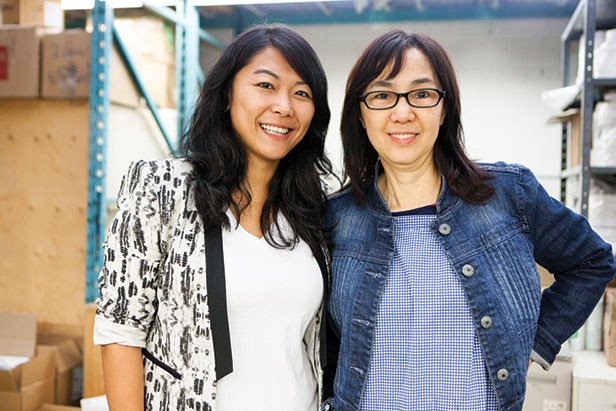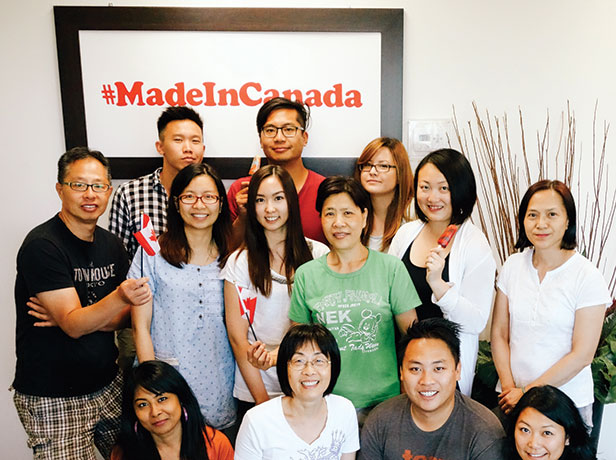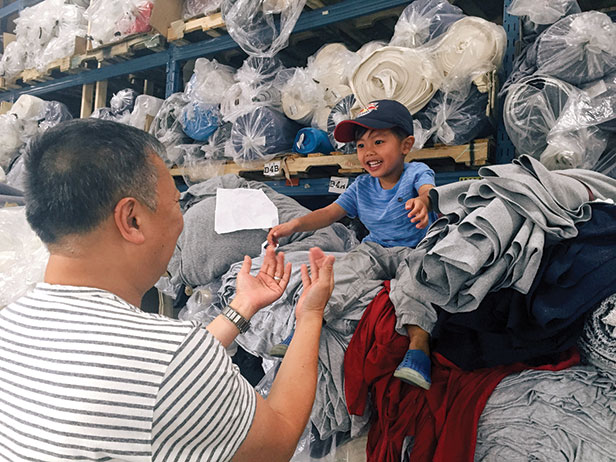January 29, 2019
Interview with Kathy Cheng, Redwood Classics Apparel
A conversation about fashion, trade and what it takes to run a socially responsible company.
Q: What will be the promo market’s hottest apparel trends in 2019?
A: My three favorites are custom PMS apparel match, all-over prints and collaborations. Companies looking to build and maintain a strong brand identity love custom PMS matching. Being able to match a brand’s unique look leaves a big impression on consumers. I see this going from a nice-to-have feature to a must-have. All-over prints have potential for playful creativity and is something loved by brands and consumers alike. Finally, the way brands are using collaborations is evolving. Combining the influence and strengths of companies with like-minded or complementary values is a great way to reach new audiences.

Kathy Cheng is the president of Redwood Classics
Q: How have you tapped into these trends?
A: Well, we recently did with our Redwood Classics x Preloved Ugly Holiday Collection. Through this collaboration, we were able to create a completely unique product within the promotional products industry, combining sustainability, responsible manufacturing and fashion.
Q: What’s popular in apparel decoration?
A: Vintage embroidery is really breaking out. From patchwork to chain stitching, vintage detailing can bring a nostalgic, DIY vibe to any piece. Brands are also opting more for private labels. We love this because it shows that brands trust our products enough to want to put their name on it. It’s also a great way for them to add a personal touch for consumers.
Q: What are the biggest challenges facing the imprinted apparel industry?
A: Environmental impact, supply chain transparency and getting consumers to invest in quality are always hurdles, not just in the apparel sector but across the entire industry. These issues all bleed into each other, but basically it comes down to your priorities as a company. At Redwood Classics, our motto is “People, Planet, Profit” – in that order. This ensures we have significant supply chain oversight. In fact, nearly 50% of the raw materials we consume are knitted within a 100-mile radius of our Toronto factory. This keeps things local, helps reduce our carbon footprint and increases quality control.

Kathy and Sandy, Redwood’s sewing floor manager
Q: Lots of companies talk about the importance of operating ethically. What does that mean at Redwood?
A: We strive to reinvest and rebuild a local manufacturing ecosystem that focuses on quality, longevity and sustainability. From design to distribution, we do everything in our power to create a more closed-loop economy. Our socio-economic values are largely born out of our origins as the product of an immigrant family. I’ll always be grateful to the country I call home and am so proud to be able to share the passion I have for Canada with others.
Q: This passion comes through in how you put together your staff, too, doesn’t it?
A: It does. Throughout our 30-plus years producing apparel in Toronto, we’ve on-boarded countless new immigrant families. Many of the makers who watched me grow up now watch my children do the same. We’ve created an environment where our employees feel valued and proud of the work they do. That means a lot to us.
Q: Do you see U.S. import tariffs on Chinese goods as an opportunity for Made-in-Canada suppliers to expand market share south of the border?
A: The import tariffs on China will definitely offer a chance to level out the playing field when it comes to the cost of promotional products. Indeed, it will help Canadian companies get their foot in the door. There’s no doubt that Canada is one of the most globally friendly trading partners, with preferential access to nearly 90% of existing export markets. Beyond this, the social and environmental benefits of keeping a more localized supply chain are huge. More people are starting to realize this.
Q: Do you think there’ll be any lingering impact on U.S.-Canadian relations after the antagonistic NAFTA negotiations of 2018?
A: It’ll come down to what brands and consumers value and the overall awareness companies have of their trade ecosystem. Overall, I strongly believe Canada is very well positioned within the trading landscape, globally and with our neighbors to the south. As awareness of the benefits of Canada-U.S. relationships grows, so will commerce.

Redwood Classics is a family-run company and leaders pride themselves on maintaining a culture where everyone feels at home.
Q: Redwood is a vertically integrated North American manufacturer. How do you remain cost competitive?
A: We’re seeing a significant shift right now in how companies and consumers perceive value. Consumers today are more informed and more conscious of their buying choices; they care about more than just the price tag. Our focus has always been on creating high-quality products through a collaborative, flexible and agile approach. This focus has allowed us to etch out a niche among those who see the value in expert craftsmanship and social responsibility.
Q: Do you think Made-in-Canada and Made-in-USA apparel production will increase over the next decade?
A: Yes, I do. With the steady growth in conscious consumerism and a political landscape that’s likely to motivate corporations and distributors alike to seek out more local options, I see this as just the beginning of a revival. Over the past 18 months, we’ve seen an unprecedented increase in interest through web traffic and direct inquiries from retail and promotional product distributors globally, spanning the U.K., Europe, Japan and even New Zealand.
Q: How can promotional products distributors sell more domestically made apparel?
A: Focus on the why. Every brand has a story. Figuring out that story builds a more authentic brand with which consumers want to connect.

Kathy’s son having fun at work.